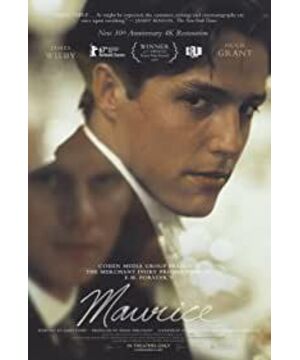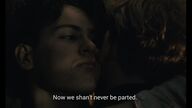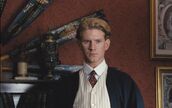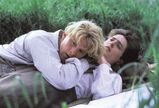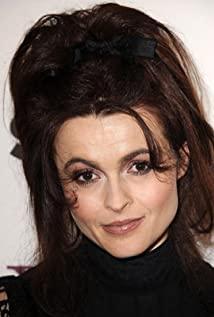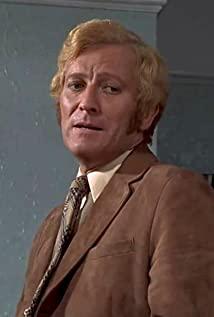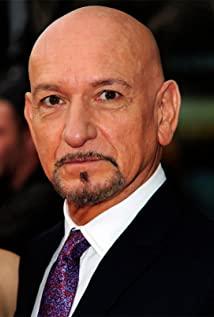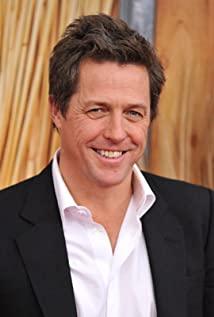Part 1
In the era when Foster lived (1879-1970), homosexuality was illegal in the UK. Oscar Wilde was convicted of "indecent assault" and sentenced to prison in 1895. He was a famous writer, and it was difficult to produce aesthetic works after he was released from prison. . Foster, who is gay himself, is under enormous pressure in a secular context. This worldly pressure is an injustice, and Morris, written in 1913, is more of a protest in words, with Clive, Morris and Eric each having a symbolic meaning.
In the book Clive is very small, with a fair face, fair-skinned and blushing easily, quick-witted and witty. The movie character is played by Hugh Grant, a 1.8-foot-long, handsome young man who, no matter what he does, is inevitably softening, and it's hard to blame the character. Clive was perceptive, and he discovered his personal orientation at a young age, turning his faith from theology to Hellenism (Plato and the Symposium recur in the story). In the communication with Morris, the first confession.
When Morris was young, he was beautiful, round, unremarkable, and a little clumsy. He came from a public school that only cared about the students being fed and making mistakes, and had no great education (He was a plump, pretty lad, not in any way remarkable). He grew up to be a handsome young man with a dull mind and a healthy body like an athlete.
In my opinion, the author's repeated emphasis on Morris's "blindness of mediocrity and clumsiness" is alluding to Morris's thoughts rather than his appearance. After all, Morris is a youth irresistible in love as in war, has been praised by the headmaster of the school, and has delivered a speech on the awards day in Sannington. He is really an excellent young man. And his thoughts are chaotic and ignorant. The book clearly states that he is born gay, but he has always been ignorant and somewhat empty. Cosplayer James Welby's beauty and dynamism are also hard to hook up with dullness, but it shows up when they start arguing. For example, when he was boating on the Kang River and evaluating Christianity, Morris was run and argued by Clive and his friends, and he had to say "I can't prove it, but no matter what you say, they are very important to countless people." "I can't prove...but no matter...I just think..." The cunning sentence pattern makes people smile.
The two first met in Risley's suite, a Cambridge senior, and then went to another friend's room to listen to the player piano. The movie opens the ambiguous here, just listening to the piano performance, Morris seems too excited and enthusiastic, and Clive naturally puts the apple in Morris's hand.
Unconscious intimacy began to escalate. Clive seemed to be curled up in Maurice's room all the time, walking arm in arm or arm around shoulder, and always maintaining the same snuggling position when sitting (Maurice in a chair and Durham at his feet)—this is one of the most beautiful scenes in the film, like a painting—Morris is in the armchair and Clive is on the rug, leaning against his knees. Morris's hand kept stroking Clive's hair on the temples, which was a kind of excessive behavior. The audience understood it, and Clive understood it. He rolled over and hugged Morris, and quickly confessed (That I love you) ).
Morris, startled by his dull mind, said "Rubbish" so that Clive turned and ran. After he finally reacted, he went to the room to find Clive. However, Clive didn't believe him, and he was irritated by cold words. Morris stood in the yard in the middle of the night, climbed the window (an important image) and got into the house, gave Clive a quick kiss, and ran away through the window.
Forerunner Clive, completed the enlightenment of Morris. But once Maurice understood, he burst out with lasting and astonishing courage, and finally got ahead of the forerunners...
Part 2
The two began a happy time that started with a clear relationship and ended with a turning point. During this period of time, I have to mention that the two did not have particularly close contact. Clive believes in Plato, Morris... Morris has no clear idea, he obeys Clive. When I asked Clive what he liked about him, Clive said his beauty was like the Michelangelo painting on the wall. Clive resisted Morris's instinctive desires for intimacy. In the film, the day after climbing the window, the two were out on a trip, rolling on the grass, and Morris kissed and stroked him. He said, "No, it will destroy the harmony (Plato)." Morris often has all kinds of involuntary small movements. , Clive can't help it too, but more often, he will restrain his hand to stop it.
Morris rode a motorcycle with Clive skipping class. The superintendent asked him to write an apology letter. Morris refused. He thought it was unfair. will be scolded," he admitted. Morris dropped out because of this. After dropping out, Morris became a stockbroker like his father, and Clive studied for a lawyer at school. The two meet three times a week. Similarly, although they often get along in the same room, their intimacy is limited to him helping him remove his cufflinks and his bow tie. This period lasted about three years.
The turning point has finally come. Regarding the turning point, there is a big difference between the movie and the book. In the film, Clive's change of heart is dealt with as he witnesses his classmate Risley being arrested for being discovered for his homosexuality, disgraced and his political future ruined (the official film restrains and only describes the judge's announcement of "six months in prison and Hard labor... pays the price of a lifetime". In the cut clips, there are tragic experiences of Risley after the sentencing, as well as the plot of suicide in the room) and was frightened. Clive was worried about the interaction and fainted and fell ill. He unilaterally announced to Morris that he was ending the relationship. He quickly married a wife and indulged in a career. After marriage, he invited Morris to his house as a guest, but avoided meeting with Morris. Finally, on the night that Morris really left him, he closed the bedroom window (the window appeared again) one by one, but unconsciously held the window and looked into the distance, vaguely, it was still the one in the Cambridge sunshine. The youth jumping on the lawn beckoning to him... All of this makes people think that Clive still loves Morris, but just succumbed to reality.
In the book, there are more discussions on Plato and Greece. It seems that Clive agreed with Plato from the bottom of his heart, and then suddenly discovered the beauty of women in nurses during a flu, and yearned for a relationship that could flirt in the sun. During the trip to Greece, the ruined ancient Greek buildings also destroyed Clive's beliefs. In the ruins, he wrote a letter to Morris: "Against my will I have become normal. I cannot help it." Reese announced that the relationship was over and he was going back to his normal life.
It is conceivable that the close lover suddenly announced the end of the relationship without warning. Morris was so unacceptable that he burst into tears: "Then what should I do? What an ending?"
Morris couldn't get out. Clive called him to inform him of the wedding, and he learned that he was the eighth person to be notified. "He was taught by Clive to like the "proper" of women, and he opened the window at night to get in the rain and whistled silently. He sought the help of a psychiatrist and said to the doctor, "I'm an unspeakable of the Oscar Wilde sort", hoping that the doctor would cure him. The doctor tried to hypnotize him again and again to convince him that he could accept and Women together.
Morris lay on the examination bed like a lamb. The doctor said, "Look at the girl's beautiful long hair." "I prefer short hair." "Why?" "Because I can caress it." Morris cried.
Part 3
Eric's appearance rescued Morris.
Eric is the newly hired gamekeeper of the Clive family. He is uneducated, has a ridiculous accent, and has the same fierce eyes as a wolf. He never considers himself inferior.
The first meeting between the two is already two-thirds of the book and two-thirds of the movie. Even in the back, there is not much space. All he knew was that he was a servant, and all he could see was Morris crawling into his window when he was vulnerable, hugging him, kissing him, spending the night together. Then invitations to meet in the docks go unheeded, chases to London for threats, a night in a hotel, etc. So that bystanders will wonder, is such a person worthy of Morris? But carefully tracing the plot since they met, we can find that yes, he wants him, he wants him too, and they fell in love at first sight.
The first is their first encounter, Morris being invited to visit Clive's manor, and Eric is flirting with two maids as the carriage pulls into the manor (for Morris, he remembers the pair of fiery Godly brown eyes; for Eric, as soon as he saw him he thought "If only I could get him").
In the evening, the roof of the living room leaked, and the host asked Eric to come in to deal with it, and at the same time called Morris to go upstairs. Morris ignored it and remained in the living room.
On the second day of our visit, Maurice and his companions went hunting, and Eric accompanied him. This day is Morris's birthday, but he did not receive any blessings from Clive, and he was even forced to give Clive a "two clear" kiss in the evening. Morris was so alone that after Clive left contentedly, he opened the window and let himself get wet in the rain. He suddenly shouted to the yard: "Come on!" and was startled by himself. When he returned to the desk and started to write to the psychiatrist, he no longer felt alone. He felt that someone was looking over his shoulder. (actually, yes, Eric was hiding under a tree in the distance, looking at his window).
On the third day of his visit, Morris was about to go out to see the doctor (to treat his "illness") and saw Eric waiting on the porch, tipping him, but Eric didn't answer. Morris quipped that he thought the tip was low (Five shillings not good enough? You'll only take gold?). Eric helped load the luggage into the carriage, the car started, and after the carriage climbed a small slope, Morris actually glanced at Eric again. (Normally, Morris is not a mean-spirited person. Eric waited on the porch just to help the gentleman move the box, and after the carriage started, he took a short cut to get another look at the carriage. He thought Morris is not coming back, and himself, soon immigrating to Argentina with his family.)
Morris' carriage returned to the manor in the evening. Before and after dinner, he walked in the courtyard and met Eric several times. Even in the middle of the meal, the butler was heard giving Eric a message, asking him if he needed this or that.
At night, Morris had trouble sleeping, and the treatments he had experienced during the day made him nervous and vulnerable now. He finally fell asleep, only to wake up, he pulled the curtains, opened the window, shouted outside: "Come on!" Ah, ha, here comes Eric.
The following plot is logical. Eric wants to travel far and invites Morris to meet again in the boathouse before he leaves. Morris did not dare to go to the appointment because of his doubts about him and fear that he would fall into a dishonorable trap. Eric went to London, rarely dressed decently, weakly threatening or accusing, and the two were at each other's throats. In the end, Eric's goal was to get close again.
Eric is leaving, and he has a chance to be the best in Argentina. Morris issued a second retention, the first time was on the first night, he said, if you stay, I will tell you my dream (Morris has always had a dream about 'friends' since he was a child ), as if the kid said, "If you'll be my friend, I'll tell you a secret." This time, he said, I moved out and quit my job (It's a chance in a thousand we have met...Stay with me. We love each other.).
In the end, he chased him to the ferry to see him off. There was no need to say what kind of mood he was in at that time. The ship set sail, and Eric did not appear on board. The ecstasy of that moment, the expression of the moment, his fingers began to tremble unconsciously, he got into the car and went straight to his destination. He went to the boathouse, where he knew Eric was waiting for him.
And Clive, like Morris's final statement, becomes a book that is closed and will not be read again (You belong to the past. I'll tell you everything up to this moment—not a word beyond ).
View more about Maurice reviews


